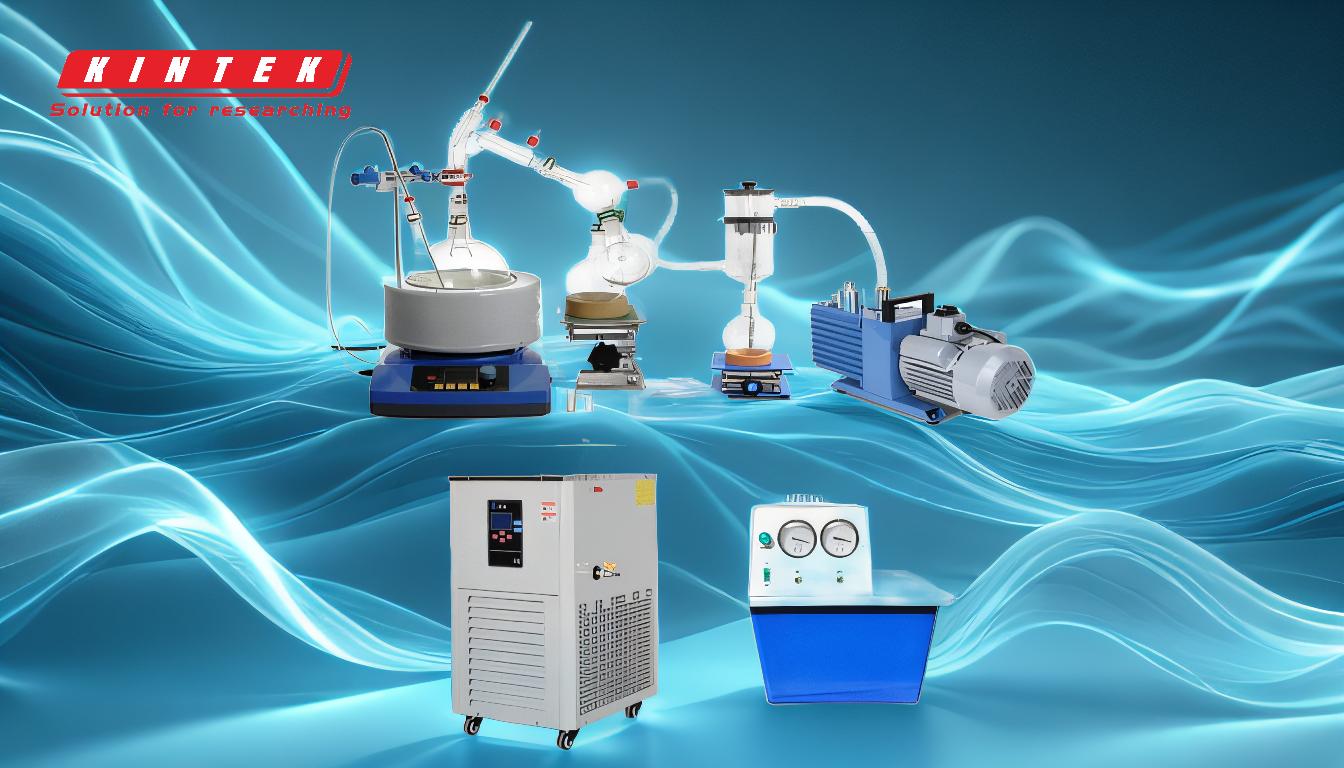Distillation is a versatile separation process widely used across various industries to produce and purify a range of products. It is particularly effective in separating components based on their boiling points, making it ideal for applications such as water purification, alcoholic beverage production, fragrance extraction, oil stabilization, and air separation. Additionally, specialized techniques like short path distillation are employed in industries such as pharmaceuticals, food, and chemical production to handle heat-sensitive or high-purity compounds. Below, we explore the key applications of distillation and its significance in producing specific products.
Key Points Explained:

1. Water Purification and Desalination
- Distillation is a cornerstone of water purification, particularly in desalination processes where seawater is converted into potable drinking water. The process involves heating seawater to produce steam, which is then condensed back into pure water, leaving behind salts and impurities.
- Distilled water is also essential in industrial applications, such as:
- Lead-acid batteries: Ensures the electrolyte solution is free of impurities that could affect battery performance.
- Low-volume humidifiers: Prevents mineral buildup and ensures clean, safe moisture output.
2. Alcoholic Beverage Production
- Distillation is a critical step in the production of alcoholic beverages, such as whiskey, vodka, rum, and gin. It separates ethanol from fermented mixtures, concentrating the alcohol content and removing unwanted byproducts.
- The process enhances the flavor profile and purity of the final product, making it a staple in the beverage industry.
3. Fragrance and Flavor Extraction
- Distillation is used to extract essential oils, perfumes, and food flavorings from herbs, flowers, and plants. The process captures volatile aromatic compounds, which are then used in:
- Perfumes: Creating high-quality fragrances.
- Food flavorings: Enhancing the taste of various food products.
- This application is particularly important in the cosmetic and food industries, where purity and consistency are paramount.
4. Oil Stabilization and Petroleum Refining
- In the petroleum industry, distillation is used to stabilize crude oil by reducing its vapor pressure, making it safer for storage and transportation. This process also separates crude oil into its constituent components, such as gasoline, diesel, and kerosene.
- Additionally, distillation plays a role in processing edible oils and producing biofuels, ensuring the final products meet quality and safety standards.
5. Air Separation via Cryogenic Distillation
- Cryogenic distillation is used to separate air into its primary components—nitrogen, oxygen, and argon. This process is vital in industries such as:
- Medical: Producing high-purity oxygen for respiratory therapies.
- Industrial: Supplying gases for welding, metal fabrication, and chemical synthesis.
6. Chemical Synthesis and Industrial Purification
- Distillation is widely used in chemical manufacturing to purify liquid products obtained from synthesis reactions. It ensures the removal of impurities and byproducts, resulting in high-purity chemicals suitable for various industrial applications.
7. Short Path Distillation for Specialized Applications
- Short path distillation is a specialized technique used in industries requiring high-purity or heat-sensitive compounds. Key applications include:
- Pharmaceuticals: Producing active pharmaceutical ingredients (APIs) with minimal degradation.
- Nutraceuticals: Extracting CBD oil from hemp plants for health supplements.
- Essential Oils: Isolating high-value aromatic compounds for use in cosmetics and aromatherapy.
- Food Industry: Processing edible oils and creating flavor concentrates.
- Chemical Industry: Distilling high molecular weight organic compounds and polyurethane.
8. Handling Unstable or Small-Quantity Compounds
- Short path distillation is particularly effective for compounds that are:
- Unstable at high temperatures: Ensures minimal thermal degradation.
- Required in small quantities: Allows for precise and efficient separation on a small scale.
Conclusion:
Distillation is a fundamental process with diverse applications across industries, from producing essential resources like clean water and oxygen to creating high-value products such as alcoholic beverages, fragrances, and pharmaceuticals. Its ability to separate components based on boiling points makes it indispensable for purification and concentration processes. Additionally, specialized techniques like short path distillation extend its utility to heat-sensitive and high-purity applications, further solidifying its role as a cornerstone of modern industrial production.
Summary Table:
| Application | Key Uses |
|---|---|
| Water Purification | Desalination, lead-acid batteries, humidifiers |
| Alcoholic Beverage Production | Whiskey, vodka, rum, gin – enhances flavor and purity |
| Fragrance & Flavor Extraction | Essential oils, perfumes, food flavorings |
| Oil Stabilization & Refining | Crude oil separation, biofuels, edible oil processing |
| Air Separation | Cryogenic distillation for medical oxygen, industrial gases |
| Chemical Synthesis | Purification of liquid products, high-purity chemicals |
| Short Path Distillation | Pharmaceuticals, nutraceuticals, essential oils, food flavor concentrates |
Learn how distillation can optimize your processes—contact our experts today!









